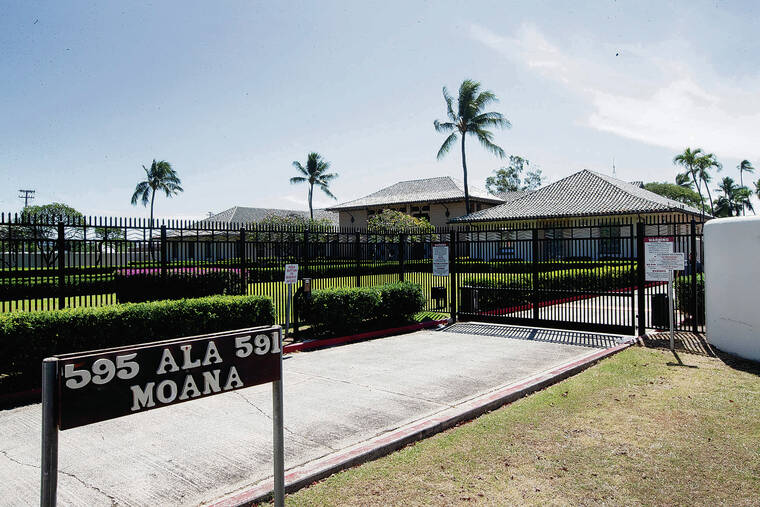Hawaii companies and consumers could face multiple rate increases for interisland ocean cargo over the next few years as part of last week’s regulatory request by Young Brothers LLC.
The company’s Oct. 15 application to the state Public Utilities Commission not only seeks a general rate increase averaging 20 percent for most cargo, but also asks for annual automatic rate changes tied to inflation.
Young Brothers said it needs such annual inflationary increases to mitigate what it calls “delayed” recovery of higher expenses under the PUC’s process of considering general rate increases, a process that requires public hearings and involves a lot of time, labor and expense.
For instance, the company said an $80 million investment in 2018 for new tugboats was only partly factored into current rates because of timing between the investment and a general rate increase, leaving Young Brothers to shoulder $60 million of the investment since 2020. This, the company added, underlies part of its need for a bigger current requested rate increase, which totals 27 percent and includes hikes as big as 45 percent for some types of cargo.
“Young Brothers has been impacted by the delayed recovery of investments to improve service, making it more difficult to attract capital at reasonable rates,” Jay Ana, company president, said in a statement. “Young Brothers needs timely and adequate rate relief to recover the true cost of service and continue fulfilling its role as a critical lifeline for Hawaii’s commerce and communities.”
The company said inflationary annual rate increases could reduce the size of general rate increases, and have been recommended by a legislative working group established in 2020 around the time of the last general rate increase by the only regulated interisland ocean cargo carrier in Hawaii.
Concerns about an annual inflationary increase, however, also were raised by the working group.
The Water Carriers Working Group was formed by request of a Senate resolution and had 18 members representing the Legislature, the PUC along with several other state agencies, the four county mayors and industry stakeholders that included Young Brothers and the International Longshore and Warehouse Union.
In a December 2021 report to the Legislature, the group recommended a two-tier annual rate adjustment between required general rate increase applications every three years to help improve economic stability of regulated cargo operations and mitigate the likelihood of large general rate increases.
“General rate cases tend to be time consuming to both the water carrier and the (PUC),” the report said. “As a result, regulated cargo rates do not typically get adjusted annually and are sometimes subject to relatively large rate increases when the cases are completed.”
The first tier in the recommended annual increase would be equal to the annual percent change, up to 5 percent, in the gross domestic product price index reported by the U.S. Bureau of Economic Analysis.
The second tier would be based on expenses incurred by Young Brothers and subject to PUC approval.
Young Brothers seeks only the first-tier annual rate adjustment.
The working group’s report said an automatic inflationary rate increase has drawbacks, including the potential that it is viewed as a disincentive for company management to control costs or grow cargo volume. The report also said such an increase could result in a company realizing a bigger financial return than allowed by the PUC between general rate increases.
Young Brothers said in its application, which it declined to release Oct. 15 ahead of the PUC posting it online the next day, that its rate of return would be 10.92 percent in 2025 with its requested general rate increase approved or a negative 8.21 percent without an increase.
The last general rate increase for the company was 46 percent in 2020, based on an emergency request the company said it needed to nearly break even financially and avoid shutting down amid a sharp falloff in business early on in the COVID-19 pandemic.
At the time, the state Consumer Advocate considered the increase excessive. In 2021 a state-ordered audit concluded that the emergency increase was producing profits for Young Brothers and said there was a strong argument for the emergency increase to be reduced.
In April, Young Brothers applied to the PUC for annual inflationary increases, and asked for the first one by July ahead of a general rate increase in 2025, followed by more automatic inflationary increases in 2026 and 2027.
State Consumer Advocate Michael Angelo urged the PUC to deny the company’s April application and said in part that public meetings should be held on the matter to help ensure that consumer interests are protected by enabling greater transparency and public participation.
The PUC in May suspended action on the application. Now Young Brothers in its general rate increase application has asked the PUC to resume action on its April application for annual inflationary rate adjustments, or to grant such adjustments as part of the new general rate increase case.
In its general rate increase application, Young Brothers seeks approval for an initial annual inflationary increase no later than March 1, followed by approval of a general rate increase.
The company said in a statement that it assumes no inflationary increase, if approved, would take effect before a general rate increase. But if it did, then Young Brothers said that could reduce the size of its general rate increase request for 2025. After that a total increase could be compounded by two more inflationary increases in 2026 and 2027 before another general rate increase if approved by the PUC.





